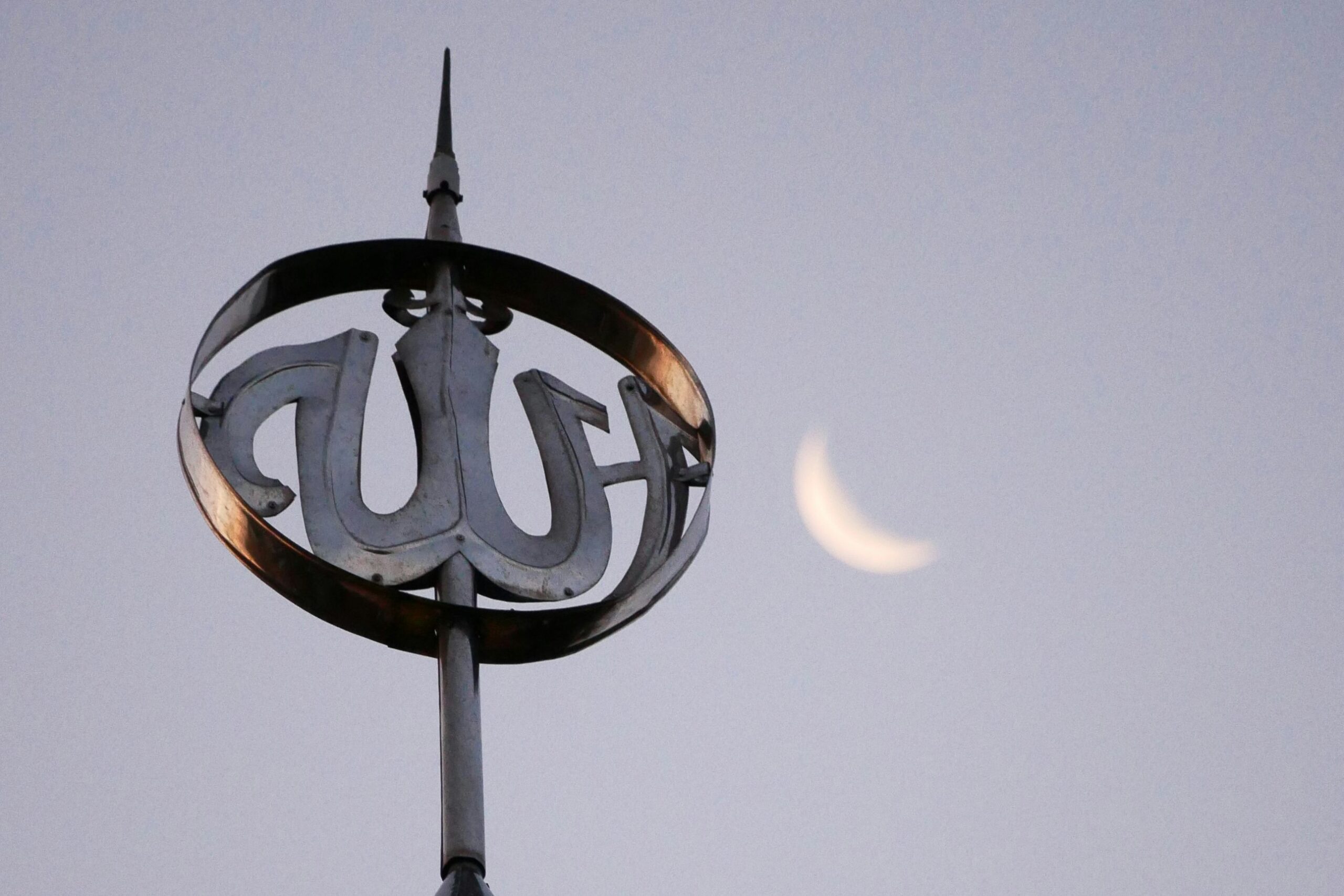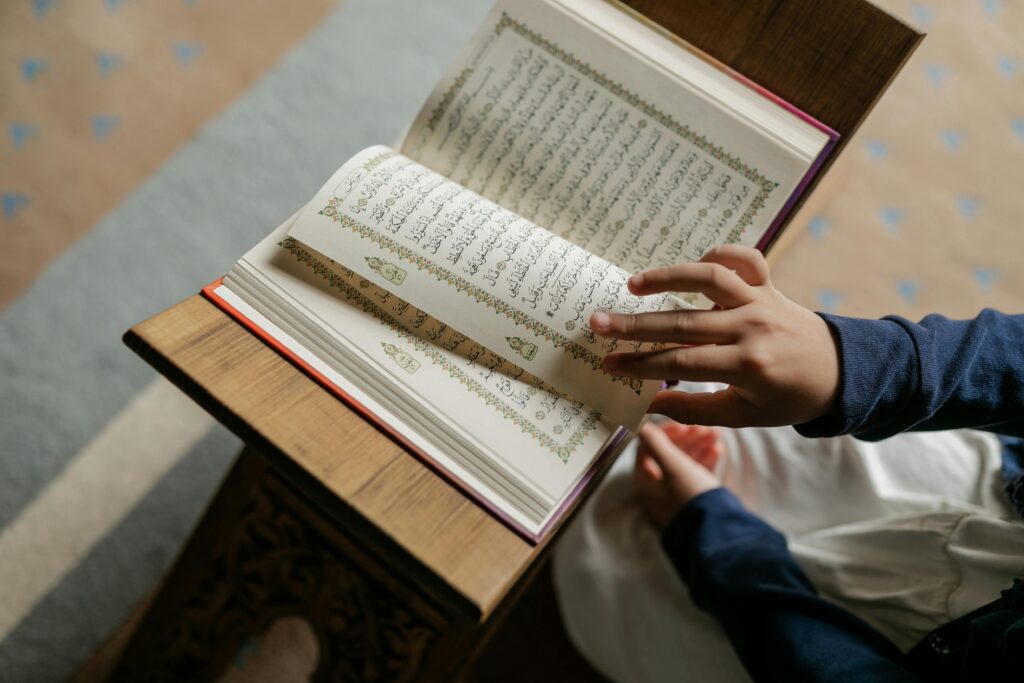
06.26.25
Muharram 2025: The Month of Allah (SWT)
Muharram is the first month of the Islamic calendar. It marks the start of the Islamic New Year.
Beyond being the start of another Hijri year, Muharram is also a sacred month. One with great opportunities to increase our rewards. So how do we make the most of it?
What is Muharram?
In Arabic, “Muharram” means “forbidden”. This refers to it being one of the four sacred months in which warfare is forbidden. In Surah At-Tawbah, it says:
“Indeed, the number of months with Allah is twelve [lunar] months in the register of Allah [from] the day He created the heavens and the earth; of these, four are sacred. That is the correct religion, so do not wrong yourselves during them. And fight against the disbelievers collectively as they fight against you collectively. And know that Allah is with the righteous [who fear Him].”
Quran 9:36
The four months are mentioned by name in this hadith, where the Prophet (ﷺ) said:
“…The year is of twelve months, out of which four months are sacred: Three are in subsequent Dhul Qadah, Dhul Hijjah and Muharram, and (the fourth is) Rajab of (the tribe of) Mudar which comes between Jumada Al-Thani and Sha’ban.”
Sahih Al-Bukhari
As such, in these months, Muslims are encouraged to engage in increased worship, for the rewards for good deeds are multiplied.

When is Muharram 2025?
Muharram is the first month of the Islamic (Hijri) calendar. Based on a lunar cycle, the sighting of a new moon determines the start of a new Islamic month.
Last year, Muharram 2024 began on Sunday, 7th July 2024. In 2025, the first Islamic month begins on the evening of Thursday, 26th June 2025, depending on the sighting of the moon.
Key dates in Muharram
There are 12 months in the Islamic calendar, but we tend to know more about some months than we do about others.
While everybody knows that we fast in Ramadan and about the sacrifice of Dhul Hijjah, Muharram is a bit less well-known.
However, its religious and historical significance is extensive, as many important events have occurred in this month.
1st Muharram
The 1st Muharram marks the beginning of the new Islamic Year. This lunar calendar (also called the Hijri calendar) starts from the hijrah (emigration) of the Muslims to Medina and the establishment of the first Islamic state in 622CE.
There are no prescribed acts of worship for Muslims to observe on the 1st of Muharram. However, as the beginning of a sacred month, Muslims may use it as a time to renew their intentions to do good for the year ahead.
It can also be a day to reflect on the journey and struggle of our beloved Prophet Muhammad (ﷺ) and his Sahabah (companions), and other Prophets throughout history as several significant historical events occurred during this month.
The Day of Ashura
The Day of Ashura falls on the 10th of Muharram. It is one of the most virtuous days of the Islamic year.
One of the reasons for its significance is the many events in Islamic history that take place on this day.
The Battle of Karbala
The battle of Karbala (680CE/61 AH) that occurred on Ashura marks a conflict of many great tragedies.
It was fought between a small army of the supporters and family of the Prophet (ﷺ) and the army of Yazid, the Umayyad Caliph who had a significantly larger army. There, the martyrdom of Husayn (AS) (also referred to as Imam Hussain ibn Ali), one of the Prophet (ﷺ)’s grandsons, took place.
In a hadith, the Prophet (ﷺ) once said:
“Husayn is from me, and I am from Husayn. Allah loves anyone who loves al-Hasan and al-Husayn. They are two of my distinguished descendants.”
Al-Albani
Many of Prophet (ﷺ)’s family members and companions were also martyred during the battle. In their martyrdom, we reflect on these tragedies and their struggles in striving for the cause of God.
The Prophets (AS) and Ashura
The Day of Ashura also commemorates when Allah (SWT) freed the Prophet Musa (AS) and his people (Bani Isra’il) from the Pharaoh (Fir’aun) and his army.
Some narrations also mention significant events from other Prophets (may peace be upon them all).
On this day, Allah (SWT) returned Prophet Nuh (AS)’s arc to dry land after the flooding stopped.
For Prophet Adam (AS), it was the day he repented and was forgiven by Allah (SWT) after eating the forbidden fruit.
While, for Prophet Yunus (AS), it was the day Allah (SWT) released him from the belly of the whale and forgave his people.
As such, the Day of Ashura is a great day for reflection and increasing in good deeds – and one we should not miss out on!
What should we do in Muharram?
Muslims commemorate Muharram as one of the four sacred months. It also holds the title of ‘the month of Allah’, (shahr Allah al-Muharram شَهْرُ اللَّهِ الْمُحَرَّمُ) making it one of the most blessed months in the Islamic calendar. (Muslim)

Therefore, it is a good time for Muslims to engage in acts of worship. This includes reflecting, giving Sadaqah, increasing nafl (voluntary) prayers, reciting Qur’an, and fasting.
Fasting during Muharram
Muharram is one of the best Islamic months to fast in. Many ahadith report about the importance of fasting in Muharram, especially on the Day of Ashura.
The Messenger of Allah (ﷺ) said, “…The best fast after the month of Ramadan is fasting in the month of Allah, al-Muharram.”
Muslim
Ibn Abbas, may Allah be pleased with him, said, “I did not see the Prophet, peace and blessings be upon him, as eager to fast a day and preferring it over others except for this Day of Ashura and this month of Ramadan.”
Bukhari and Muslim
The Prophet was asked about fasting on the Day of Ashura, and he said, “It will expiate the sins of the past year.”
Muslim
Fasting on 9th Muharram
The Prophet also recommended his people to fast on the day before Ashura (9th Muharram). This is due to the Hadith:
When the Messenger of Allah (ﷺ) fasted on the day of ‘Ashura and told the people to fast, they said, “O Messenger of Allah, this is a day that is venerated by the Jews and Christians.” The Messenger of Allah (ﷺ) said, “Next year, if Allah wills, we will fast on the ninth day.” But by the time the following year came, the Messenger of Allah (ﷺ) had passed away.
Muslim
Thus, the Prophet (ﷺ) wanted Muslims to also fast on the 9th to differ from the People of the Book. If one misses the 9th, one can fast on the 10th and 11th of Muharram. However, it is also okay to only fast on the 10th, if one is unable to also fast the day after or before it.
Build a Muharram Action Plan
The sacred months offer us the opportunity to seek the mercy and favour of Allah (SWT). Thus, there is an opportunity to gain more rewards every day.
There are many simple virtues we can do to take advantage of the benefits of Muharram. This month, try to…
- Fast: Keep a fast on the 9th and 10th Muharram (the Day of Ashura), or on the 10th and 11th Muharram. Fasting expiates sins.
- Reflect: If you are unable to fast, reading the Qur’an or doing Dhikr can help you to feel the blessings of Muharram. Remember, any gathering for the sake of Allah SWT will also be filled with barakah and the Angels will join you.
- Give: Muharram marks the beginning of the Islamic New Year, so it’s the perfect time to make resolutions and establish good habits like giving regular Sadaqah (charity), so that you can gain blessings all year round.
Make the most of Muharram
Give and change the lives of the most needy and vulnerable of our Ummah on one of the most blessed of months.



